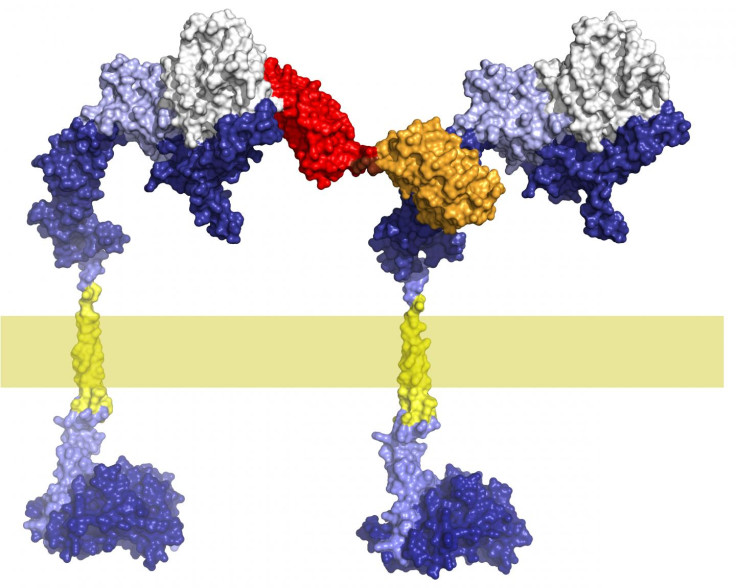Breast cancer's Achilles heel: Protein could take cancerous cells 'completely out of business'

The "Achilles heel" of invasive forms of breast cancer has been discovered, researchers have said. The find could lead to new treatment options that target the receptors that stimulate growth of cancer - in effect, "taking them out of business".
Current treatments against invasive forms of breast cancer are not entirely effective because they do not succeed in completely stopping the proliferation of cancer cells. However, scientists have now developed a protein compound which may provide patients with a new therapeutic option, as it appears to kill off tumour cells.
The latest study, published in Nature Communications, investigates why no treatment has appeared to work so far. "If we look at the history of the treatment of breast cancer, we only had chemotherapy at first.
This was then supplemented with antibodies, but they lack efficacy", lead author Andreas Plückthun from the University of Zurich, told IBTimes UK.
"Though the life of patients is prolonged, the level of relapse remains high, so the problem is not solved. With these antibodies, we are far from a viable cure. In our research, we wanted to understand why that is, and figure out how the receptors to which antibodies bind work".
Blocking several pathways
HER2-positive breast cancer is an invasive form of the disease. Women who have it display high levels of the HER2 receptors on the surface of breast cells - which stimulates the growth and division of cells, and the development of tumours. The antibodies used to treat the cancer bind to the HER2 receptors, so the cells are unable to grow any more.
Different types of antibodies - like trastuzumab and pertuzumab - have been used for some time to bind to the HER2 receptors of cancerous cells and render them dormant. However, outcomes for patients have been mitigated, with many at risk of relapsing.
Scientists now say HER2 uses not one but several signalling pathways to inform the cells that they should grow and divide. Antibodies only block one of those signalling pathways. In particular, a protein called RAS, which is responsible for reactivating the growth signal emitted by the HER2 receptor, remains active. For this reason, cancer cells are not killed off, and women can relapse.

New molecule
The scientists thus believed that the only way to kill off the cancerous cells was by "taking the HER2 receptors out of business". They tested protein compound on cell cultures and animal models, known as DARPins. This new class of protein compounds are easy to produce and present interesting binding properties.
When used, the compound binds simultaneously to two HER2 receptors in a targeted manner. The effect is to alter the receptors' structure, bending them to prevent any growth signals from being transmitted into the cell interior. This ended up killing the cells.
"Now that we have identified the Achilles heel of HER2-positive cancer cells, new opportunities are opening up for treating invasive tumor types like breast cancer more effectively in the future," Plückthun said.
The next step will be to prepare for potential clinical trials in order to test the compound on actual patients. If it appears successful it may even be used in other studies.
"This approach of taking a cell receptor completely out of business may be tested in the future in other cancers. We may be able to look at whether it works for other types of receptors, on other types of tumours", Plückthun concluded.
© Copyright IBTimes 2025. All rights reserved.




















